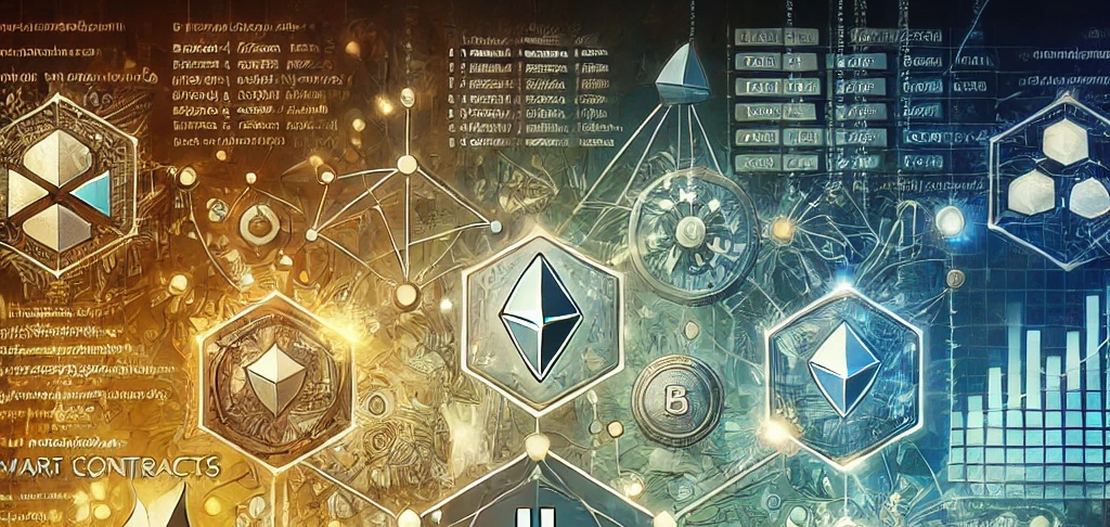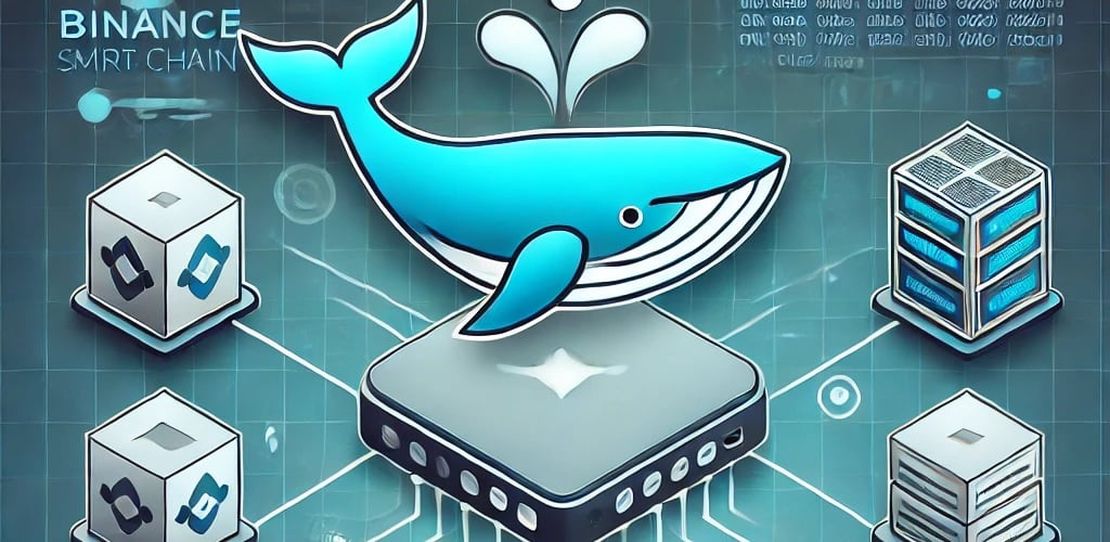
Building a Decentralized Future with LegitDAO: From Problem Discovery to AGI
- Steve Rodrigue
- Dao , Gamification , Processes
- November 9, 2024
Table of Contents
Founders of traditional startups often embark on their entrepreneurial journey by identifying a specific problem they wish to solve. Their process typically begins with a clear understanding of the issue and an awareness of potential customers who face that problem and are willing to pay for a solution. As the startup grows, the founding team broadens its vision by discovering interconnected problems and expands its offerings to serve new market segments that value similar solutions. This approach is systematic, incremental, and focuses on creating tangible value in exchange for monetary contributions from customers.
However, building a decentralized organization such as a DAO (Decentralized Autonomous Organization) differs significantly from the traditional startup model. The founders of a DAO often begin with a large, often undefined problem and may not know the exact path they will take to achieve their end goal. Instead, they focus on establishing the necessary infrastructure for collaboration and gamification that incentivizes contributions. The ultimate goal of a DAO is to empower a community to work together to create value that benefits all contributors in the short, medium, and long term.
LegitDAO exemplifies this approach, illustrating the power of decentralized governance and community-driven value creation.
The Startup Approach: Small Problems, Incremental Growth
In the startup world, founders begin with a specific, often narrow problem and gradually expand their scope to tackle bigger issues. This step-by-step growth is essential for sustainability and profitability. The initial phase typically involves customer discovery, where founders identify potential clients who are affected by the problem and willing to invest in a solution. Once the startup establishes itself by solving smaller issues, it scales up to address more complex, interconnected problems, further expanding its customer base and revenue potential.
First employees play a crucial role in this process, as their efforts are directed toward perfecting solutions for these early-stage challenges. The team focuses on gathering feedback, refining the product, and expanding their offerings to attract larger segments of the market. This methodical, linear approach lays the groundwork for sustainable growth and profit generation.
The DAO Approach: A Community-Driven Ecosystem
In contrast, the founders of a DAO like LegitDAO face a unique challenge: they often start with a broad vision for solving a significant, undefined problem without knowing the exact path forward. The initial goal is not to deliver an immediate solution but to set up a framework that allows for decentralized collaboration. This includes tools and structures that encourage community participation, enable meaningful contributions, and foster long-term value creation through gamified incentives.
LegitDAO’s founding team set out to create an environment where participants could contribute based on their interests and expertise, all while aligning with the long-term mission of the organization. To do this, the team focused on three primary objectives:
- Setting up the tools for decentralized organization.
- Gamifying contributions to ensure participants received value over different time horizons.
- Engaging and onboarding participants who could bring unique perspectives and skills to the ecosystem.
LegitDAO’s Initial Community: Leveraging Networks
LegitDAO’s initial community consisted of individuals with existing networks who were motivated to grow the ecosystem by introducing new participants. The referral system played a key role in this process, incentivizing early adopters to spread the word and bring value to the DAO. However, simply onboarding members into an empty organization would not create value on its own. To address this challenge, LegitDAO segmented contributors based on their strengths, defined their roles, and outlined how their collective efforts would contribute to the DAO’s goals.
Laying the Foundation: Identifying and Submitting Problems
The first cycle of LegitDAO’s operations revolves around building a system for identifying societal and enterprise-level problems. The long-term vision is to create an AGI (Artificial General Intelligence) that helps individuals represent themselves in society and live life according to their preferences. However, to reach that lofty goal, LegitDAO needs to create short- and medium-term value.
In the initial phase, contributors focus on identifying and reporting problems that enterprises and organizations face. This is done through a platform that integrates with MetaMask, allowing users to connect their wallets and submit ideas. Once ideas are submitted, other community members can review, upvote, and discuss these submissions. The discussion process includes constructive debates and challenges to refine and validate the concepts. Contributors who participate in the idea submission and review process earn shares in the potential solutions, ensuring that early involvement is rewarded.
Building Propositions: Collaborative Efforts Across Disciplines
Once the community has gathered and discussed a set of problems, the next step is to form teams to develop detailed propositions for solving them. LegitDAO’s collaborative approach encourages interdisciplinary teams, comprising programmers, lawyers, accountants, fiscal experts, and other relevant professionals. This structure ensures that the solution is well-rounded and feasible from both a technical and legal standpoint.
For instance, a proposition to manage apartment buildings in a decentralized way might involve the following contributions:
- Programmers: Develop software plans and smart contracts to manage the ecosystem.
- Lawyers: Bridge legal codes with the DAO’s goals, ensuring compliance.
- Accountants: Assist in planning financial management tools for the software, enabling investors to track the performance of their assets and understand any operational challenges.
The collaborative proposition-building process results in a comprehensive solution that addresses the problem holistically. The contributors who help refine and build the proposition receive shared ownership of the project, aligning their interests with the success of the initiative.
Engaging Potential Customers and Validating Market Segments
During the proposition phase, community members also engage with potential customers to gauge interest and collect feedback. This step is essential for validating the market size and identifying the most promising segments. Early customer input helps tailor the solution to real-world needs, increasing its likelihood of success. These customers are integrated into the development process, ensuring that their concerns and requirements are addressed in the final proposition.
Integration into the Ecosystem and Consensus Building
Once a proposition has been refined, existing projects within the LegitDAO ecosystem can vote to include it under their umbrella. For example, a technology-focused project within LegitDAO might adopt a new software development proposition, while a marketing-focused project could assist in promoting the new solution.
This integration phase includes discussions and consensus-building among existing projects to outline responsibilities for project management and auditing. The transparent nature of these discussions fosters trust and ensures that each project aligns with the broader goals of LegitDAO.
Service Providers: Connecting Expertise with Opportunities
Service providers play a crucial role in executing projects within the LegitDAO ecosystem. They have access to a list of project propositions, including details about ownership, contributions, and project management. Service providers can submit quotes for monetary compensation and execution time, choosing to be compensated through existing cryptocurrencies or shares in the project.
This transparent system allows service providers to understand their role in each project, see who will oversee their work, and know the expectations for each milestone. The involvement of service providers enhances the efficiency of project execution and adds an additional layer of expertise to the DAO.
LegitDAO Members: Participating in Decision-Making
LegitDAO members can review project propositions, read the discussions, and decide whether to proceed with a project’s execution. Members can join ongoing discussions to gain a better understanding of the project’s scope, potential challenges, and benefits. Based on these discussions, members can vote to approve the project, request changes, or revert to an earlier phase for revisions.
This participatory approach ensures that every project is aligned with the DAO’s values and long-term objectives. Members who contribute to discussions and voting are rewarded with shares in the project, further incentivizing active participation.
Creating Value: Short-, Medium-, and Long-Term Goals
Each project executed within the LegitDAO ecosystem contributes to immediate value creation. In the short term, solving enterprise problems generates revenue and strengthens the DAO’s reputation. This revenue supports ongoing operations and helps attract more contributors and customers.
In the medium term, projects build on one another, creating a network effect that accelerates the growth and complexity of the ecosystem. The accumulation of knowledge and data positions LegitDAO to tackle larger, more intricate problems over time, enhancing the DAO’s value proposition.
In the long term, LegitDAO aims to achieve its ultimate goal of building an AGI that represents individuals and helps them navigate society. This milestone will be the culmination of years of collaboration, knowledge sharing, and continuous improvement.
Decentralized Ownership: A Community of Stakeholders
One of the most compelling aspects of LegitDAO is the decentralized nature of project ownership. Contributors earn ownership shares based on their involvement, whether through idea submission, proposition development, marketing, or execution. This approach ensures that value creation is distributed among the community, aligning the interests of all participants with the success of the DAO.
Different types of contributors play unique roles:
- Networkers: Engage with their communities to bring new problems and ideas into the ecosystem.
- Social Media Advocates: Promote LegitDAO’s work to raise awareness and attract new contributors.
- Executors: Perform concrete work, such as developing software, drafting legal documents, or managing projects.
- Marketers: Help communicate the value of completed projects to potential customers.
The sum of these efforts creates a robust, self-sustaining ecosystem that benefits all members. Each contributor, regardless of their role, holds a stake in the success of LegitDAO, fostering a strong sense of community and shared purpose.
Conclusion
Building a startup and a DAO share a common goal of solving problems and creating value, but their approaches differ significantly. While traditional startups focus on incremental growth and customer acquisition, DAOs like LegitDAO start with a broad vision and build a collaborative ecosystem where contributors create value together. LegitDAO’s structure, which encourages community-driven propositions, collaborative problem-solving, and transparent decision-making, exemplifies how a DAO can address immediate challenges while pursuing long-term objectives, such as developing AGI.
Through collective ownership, diverse contributions, and a transparent governance structure, LegitDAO aims to redefine how society tackles complex problems. Each member plays a role, and each contribution matters. The future of LegitDAO is not just about building an AGI but about empowering people to contribute to a decentralized organization that serves as a powerful agent of change.
What’s next
In my upcoming article, I will outline a comprehensive list of all the smart contracts and website updates needed to kickstart collaborative contributions within the LegitDAO ecosystem. Each smart contract and website update will be treated as an individual project, to be developed and deployed consecutively over the next few days.


